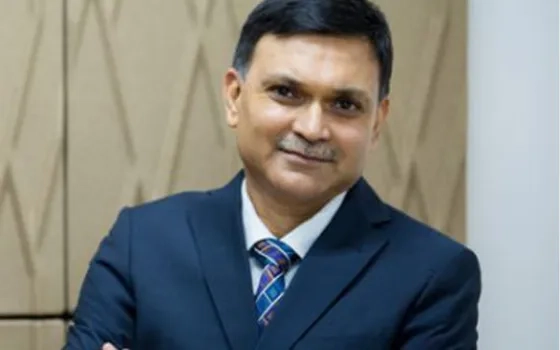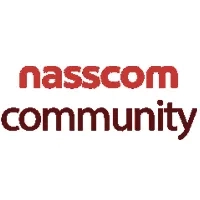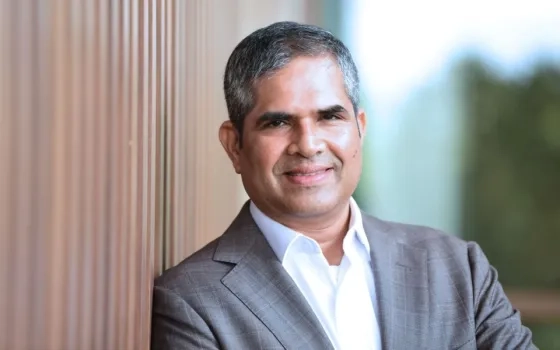1. Tell us please about this new idea “Get the future you want” and how does it match up to what’s already around? What are the ways in which it’s different?
The industry shifts have been all too evident in recent times – advanced tech such as AI, data explosion, Analytics, Blockchain, cloud, IoT, Quantum Computing, etc. are the disruptors today and have forced even age-old businesses to repurpose their business model. An accelerated digital transformation journey, new expectation-setting with more diversity & inclusivity, is the resultant effect. The most remarkable aspect is the short period in which it had been achieved.
And, then the pandemic struck out of nowhere!In this moment of truth… everything we do during and after this crisis must be with a strong focus on building more inclusive and sustainable future. We are conscious that technology is now the critical enabler to almost every transformation of business and society at large for building back better.
Our new brand promise “Get the Future You Want’ captures the spirit and energy of Capgemini and conveys our optimistic vision of the future. We want our teams, our clients, our partners, and our communities to feel that change can happen the way they want it to, and that we will help them achieve it.
In short, it is a strong commitment:
- to our clients: get the future you want as a business
- to our people: get the future you want in your career
- to ourselves at Capgemini: get the future you want as an organization.
Be relevant for tomorrow rather than be reactive to what’s happening today.
- The role of technology in driving this change – how do you see it playing out?
For people who are passionate about technology, there couldn’t have been a better time than now. We can see disruption in every industry. Earlier, tech was at the core of the product but now it’s the product itself in many cases. And, that’s a massive differentiator. Technology is creating a significant opportunity in new business models. The other shake-up is that increasingly, companies are going asset-light, adapting to the uberization way with an urgency which is almost like responding to a clarion call of sorts. Cloud, data, and AI combined is making this resolve to go asset-light even stronger as companies make a beeline to acquire best-in-class solutions for every function. Insofar, the advent of product-as-a-service is making it simpler for end clients to have greater tech access. Soon, manufacturing industry will also see significant shift by leveraging IOT, 3D, AR-VR, 5G and EDGE compuring in the manufacturing and supply chain processes. We’ve seen the kind of impact it’s having on diverse sectors such as telemedicine, e-commerce, education, etc., and creating pathways to what’s called the Contactless Economy. COVID has managed to accelerate the momentum manifold.
Technology has also played a big role in diminishing geographical barriers with remote working becoming the new norm for most organizations. At Capgemini, we have leveraged remote working to bring literate rural women from economically weak background into the mainstream workforce. Sakhi Drishtikon, an initiative by Capgemini strives to provide technical training and employement to educated women from technical stream with mobility challenge.
- How have customer expectations changed during the crisis and how has the delivery model adapted to the NEW NORMAL?
We see the new normal through the lens of 3Rs – response, restart & relaunch. For businesses, the first reaction is to respond – save lives and ensure business continuity. From here, leaders try and restart the business while getting a grip on the new cost structure, supply chain, and reduced revenue stream. We mustn’t forget that many businesses had no revenue in the initial months and for them, it was almost like starting all over again. Once ensconced, delivery moved online and the virtual model became all-pervasive. And finally the last part in this chain – relaunching the model with gusto. Today more than 95% of our employees are working from home and this is also an industry-wide reality in IT, and as a result, new ways of working have evolved with great agility. We received numerous client appreciations for continuing business operations in this difficult time. Even a few security sensitive customers especially in banking, healthcare and manufacturing sector were convinced with our security model and consented for work from home for teams on their projects. For the foreseeable future, this is likely to stay. Face-to-face localized communication is something we aren’t likely to see too soon and participants in the ecosystem will have to play their part to stay relevant.
Even clients’ expectations have changed in the new normal. What may have taken 2 – 3 years at the very least in pre-COVID times, has been achieved in a matter of 6 months.
In this new normal, we can look at three ways to engage with clients and drive business through;
- Enabling differentiated CX via phygital engagement
- Leading with Thought Leadership
- Showcasing employee and community connect
In short, Customer behavior is changing at a staggering pace, and digital adoption has become necessary for survival. When the pandemic eventually recedes, sales and service organizations will have to continue to accommodate new attitudes and behaviors. Leaders must take immediate action to meet customer expectations in the post-covid era.
- How have you kept your employees motivated and engaged during these unprecedented times?
Despite these tectonic shifts, all along, we have been sensitive to our employees’ needs as well. We launched a structured employee engagement program in order to keep the morale and spirits of our employees up while working from home. We had launched ‘Capgemini Bigg Bosss challenge’ where employees along with their family or friends can take up exciting series of tasks or contests to participate. Along with this we have also started various online quiz contests and have seen great participation from our employees. Nearly 85,000 employees have been engaged through this Pan India level program.
Also, we were among the few companies that paid out employee bonuses in April. We have also reworked our internal policies so that our employees can leverage the benefits such as medical home care and benevolent fund for medical and other emergencies for self and family in these difficult times.
- Skilling requirements specifically for this new change – what is it we should do more of and less of?
The skilling environment has changed rapidly in the last 3 – 4 years. Besides technology, there has to be a deeper understanding of industry dynamics and domain expertise. Consulting with the client is a pivotal role for service providers and a wholesome understanding of business is critical. Earlier, client engagements were centred around the CIO but today, it also includes CMO, CHRO, and CFO. Secondly, the pace at which people are expected to learn new skills is hugely accelerated. It’s critical that significant effort and time be spent on learning the First Principles because that will stand in good stead as newer and more complex ideas are introduced. The emphasis on cognitive skills needs to be emphasized at every juncture. Thirdly, learning-on-the-go. Extended classroom programs running into many weeks may soon be passe and that’s a big shift. People want to consume knowledge in smaller capsules and have the option of doing so from multiple devices. And, the levels be demarcated based on individual requirements. It’s also equally important that due recognition (badges for example) be given out when modules are completed. This encourages people to go to the next level and gain a higher level of competence. At Capgemini we launched ‘Next’ this year, a state-of-the-art AI enabled digital learning platform and a digital ‘one-stop shop’ to address all employee development needs. The AI driven ‘Next’ platform recommends personalized microlearning from renowned content providers such as Pluralsight, Harvard, Coursera, Microsoft Learn and many others. Here I’d like to mention the NASSCOM Futureskills initiative. It’s adding tremendous value to the professionals in a wide range of areas. It’s very important to build scale and the industry must invest in such learning platforms. It comes as no surprise that edtech is hotly pursued today.
- Policy recommendations that you have specifically for the government?
I’d like to thank NASSCOM for the sustained effort in working with the government to enable WFH for millions of people and especially now, with the recent DoT announcement, it’s truly a game-changer. Also, I would recommend that the SEZ Sunset Clause be looked into to enable WFH permanently for companies stationed in SEZs. One thing is sure, the in-office delivery model has changed and is likely to stay that way. We also require simplification of the Transfer Pricing laws focussing on APA and other related considerations. To add, the internship model needs to scale to engage with many more young people, and the laws impacting this area need to be simplified. Finally, work with the education ministry to help Engineering colleges across the country build a strong talent pipeline by imparting the relevant skills and expertise.
- What has the crisis taught you, nearly one year down the line, and going forward how will you operationalize it?
Peter Drucker had once said, ‘the greatest danger in times of turbulence is not the turbulence; it is to act with yesterday’s logic’. What has happened is unprecedented. No one could have imagined that disaster recovery and sustaining business-as-usual could have taken such a turn as this. Leadership style in this era is going to be about greater empathy and building trust. Our Capgemini Research Institute’s study corroborates this observation in a virtual world. According to our CRI research note, ‘Virtual Organizations Need Real Leadership’, trust is very important element of leading effectively in a virtual environment. It requires encouraging a mindset and culture of carrying on tasks with minimum supervision. In a virtual environment, employees need to be entrusted with greater autonomy which would give them a sense of ownership to complete their work and fulfil their goals.
We have seen that this new work model has been tremendously beneficial in terms of productivity gains and cost reduction. We’ve had to change our HR practices accordingly to engage with talent. In the future, I can foresee a hybrid model working out. The best part is that learning never stops and this crisis provided an opportunity for the Indian tech sector to prove its mettle and go up several notches as a trusted digital transformation partner to global clients.
Personally for me, I always like to reflect upon a crisis as an opportunity to reinvent and innovate in business as well as personal life.













